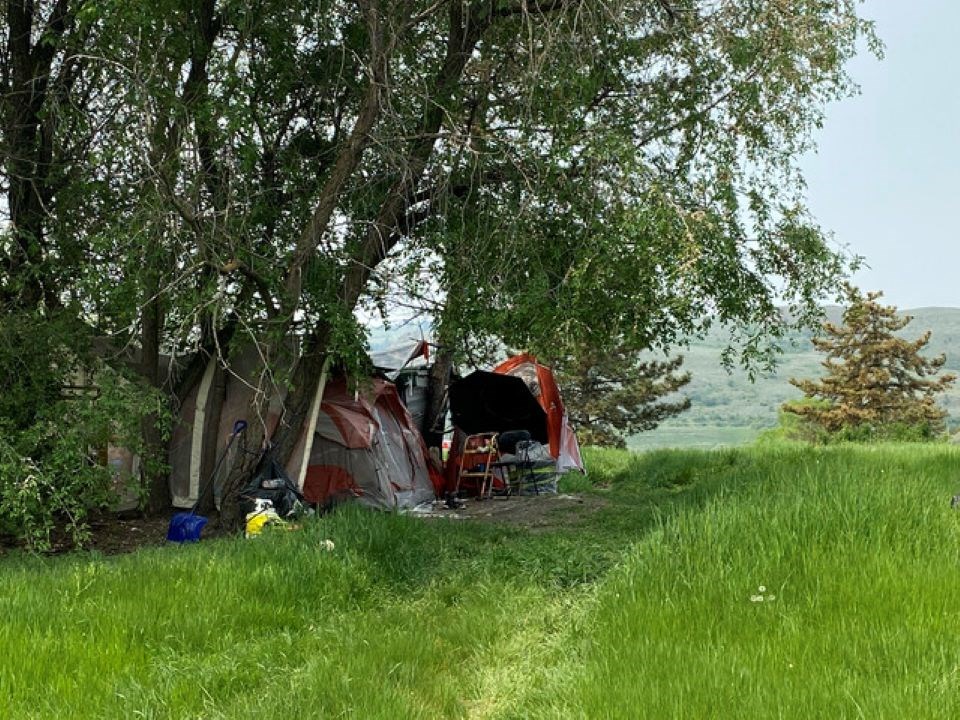A Vernon woman experiencing homelessness is trying to get off the streets, but says it’s nearly impossible to do so.
She and her boyfriend are currently homeless and live in a camp on the north edge of the city. A former drug user, she’s been clean for the past five years and is working to find a place to live.
She asked to remain anonymous because close family isn’t aware of their current living situation.
“It’s not like we want to be out here, we don’t like it,” she explained, saying it “seems like it’s pretty much hopeless half of the time”.
Her partner holds a steady job, and she’s been trying to replace her missing ID so she can get a job as well.
Making the trip downtown during working hours is tough, she says, because one of them needs to watch their tent. People keep wrecking or stealing it, meaning the pair keep replacing the costly item, sometimes three or four times a month.
She says homelessness comes with a lot of expenses that people don’t realize. Things that seem easy to access are difficult and costly for homeless people to get. Using a bathroom, getting a drink of water, or even just throwing away garbage is difficult and costly.
“We have to keep buying stuff that we need roadside, like batteries, all that kind of stuff,” she explains.
“And plus, he has work stuff that he needs. And it's pointless, like, you can't get ahead at all.”
The pair is camped on public property because going to a campground would cost too much, especially during the summer months when the fees are increased for tourists.
With the cost of living so high, she says her boyfriend and her are not alone. No matter how much money someone might have, finding a home right now is nearly impossible.
“There's people living at Superstore with their kids in their vehicles right now.”
Adding that the only difference between her situation and theirs, is owning a car.
The couple has tried the supportive housing facilities in hopes of a little help. She says they were offered to go to My Place but it allows drug use, something that would not work for the duo.
“No, we're ex-addicts and we've been good for like five years. We don't want to go live with a whole bunch people that aren't.”
Turning Points says with the current housing crisis, supportive housing has low vacancy rates across the Okanagan.
“There is a huge housing gap for folks who have done the hard work of addiction recovery. Without a doubt we need more supports for sober living housing,” says Turning Points.
It adds that the woman sharing her experience can reach out to the Homeless Prevention Program. There, caseworkers will work with her to find a solution.
She says she appreciates Turning Points, and knows it wants to help, but she feels it’s wasting money on people who won’t use the support.
“They just keep doing the same thing over and over and they don't want help, right?” She said.
“So then people like us, unless we have a needle sticking out of our arm, we can't get help. So it's kind of a catch 22.”



.png;w=120;h=80;mode=crop)